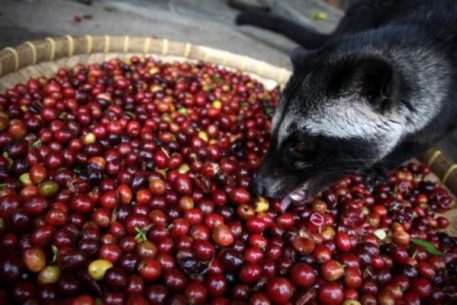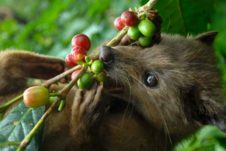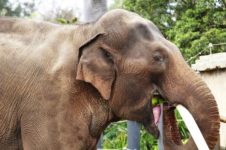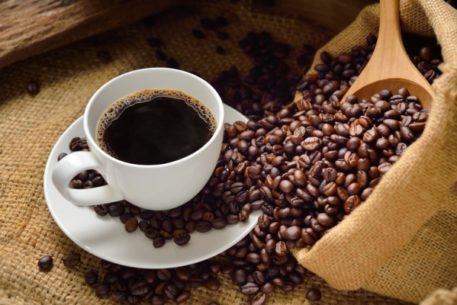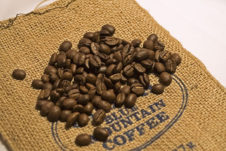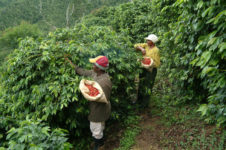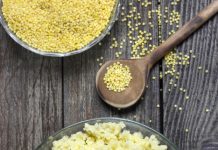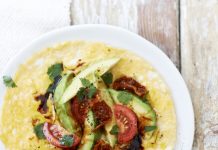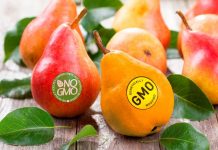Quality coffee is not a cheap pleasure. Therefore, the product that is sold at a low price does not inspire confidence, since it is most often a fake or is made from low-quality raw materials. However, the prices for coffee from feces of animals amaze and perplex the average inhabitants of the planet. Only one unit can afford this exclusive product.
Material Content:
The world's most expensive animal feces coffee
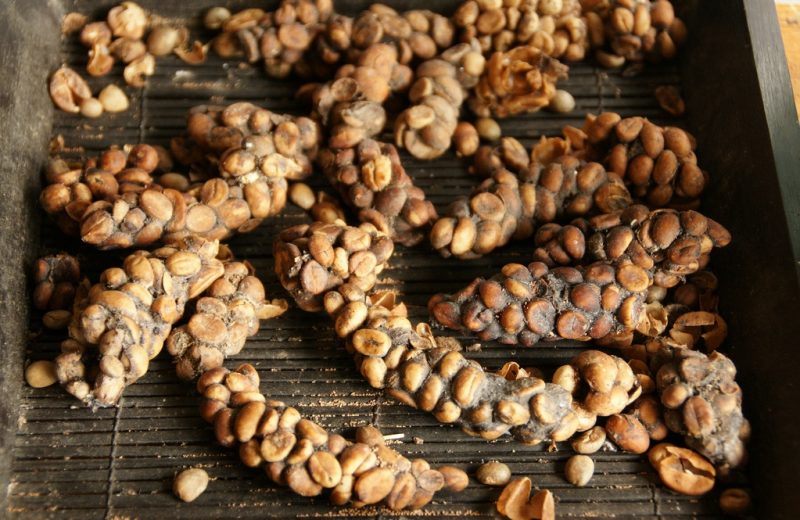
Compiling a rating of the most expensive types of coffee derived from animal waste products is difficult.
However, approximately it looks like this:
- Terra Nera from feces of palm civet. The cost of 1000 g is impressive and reaches a value of more than 20 thousand dollars. They sell it only in one of the stores in the UK capital in exclusive packaging from special thin silver paper.
- Black Ivory - elephant litter drink. The cost of such coffee is more than 1100 dollars per 1 kg.
- Luwak - feces coffee from animals from Vietnam. Not everyone can afford elite Vietnamese coffee, since 1 kg of roasted raw materials with the name Luwak costs around 250 - 1200 dollars. You can try it in very expensive restaurants or purchase in the country of its production.
There are also many other expensive, but less popular varieties of coffee.
What animals "make" elite varieties of coffee
Most of the elite varieties of coffee a person manages to get using animals. Some of them have a unique psychic and can find the finest grains.The most famous helpers in this matter are lemurs, monkeys, bats and even elephants. From an aesthetic point of view, it is difficult for many to drink a drink made from grains that once visited animals in the litter. However, coffee lovers argue that the taste of such drinks is amazing and not comparable to anything else.
Knowing which animals make tasty coffee from feces, it is easier to navigate in prices and product names.
Elite Vietnamese coffee drink - Luwak from the litter of the beast musang
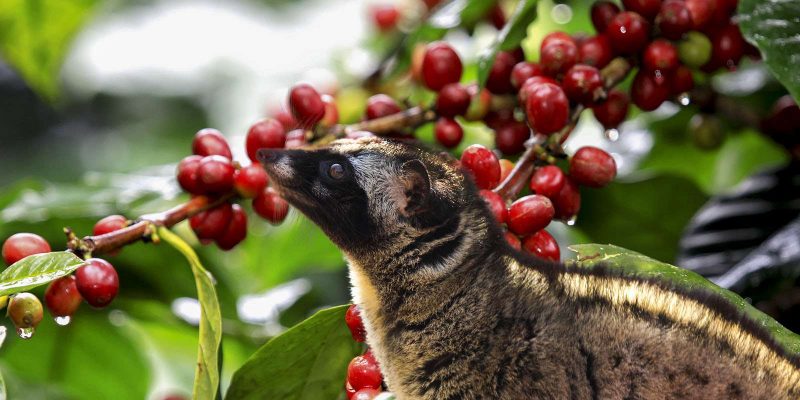
Indonesian Luwak coffee helps produce a certain type of marten called musanga. Their habitat covers many regions of Southeast and South Asia. All gourmets agree that coffee from Vietnam is not a shame to serve the king. The volume of production is small and does not exceed several hundred kilograms per year.
Coffee fruits are a favorite food of Malay martens. They are very picky in food, they will never eat green grains, but they will choose the most mature and delicious. For a day, the marten can eat about 900 - 1000 g of grains, more than 90% of which will be digested in the intestines of animals, and only 5 - 10% will come out in its original form, but without pulp.
During their stay in the digestive system of the animal, the fruits of the coffee tree are processed with gastric juice and special enzymes, which gives them unique taste properties.
It is interesting that the grains from the feces of females are selected only for 6 months, and the rest of the time “girls” do not produce an odorous enzyme.
The collected grains are thoroughly washed, dried and fried using a special technology. Details of the manufacture and processing of raw materials are kept secret, but manufacturers promise the purity and high quality of the finished product. The drink from it has an elegant bouquet of flavors of sweet caramel, delicate vanilla and dark chocolate.
Today they are trying to produce this coffee on an industrial scale. However, such a drink differs from a naturally produced one. Apparently, in captivity, animals are not so generous with enzymes.
"Black tusk" from feces of an elephant
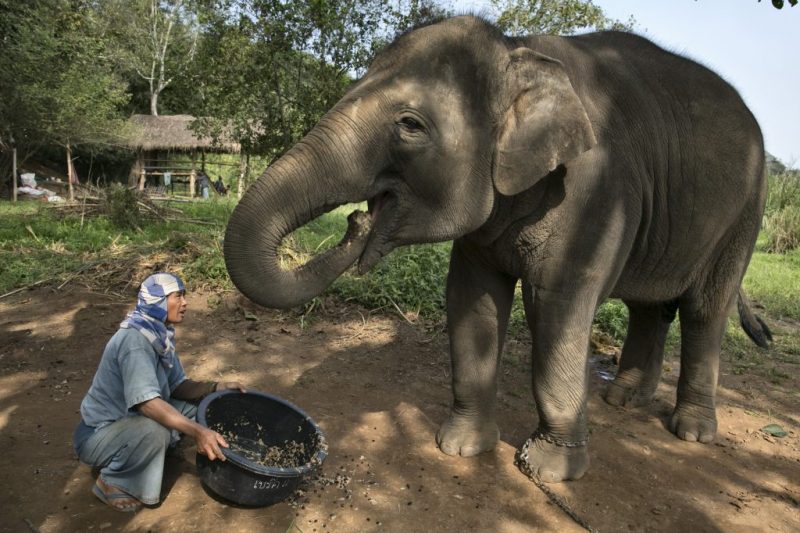
This coffee is considered one of the most exclusive. It is sold only in several stores in Thailand - the birthplace of this brand - in total, about 48 - 49 kg per year. These numbers are not surprising, because in order to get 1000 g of coffee from elephant feces, the Thai giant needs to eat at least 34 kg of selected Arabica coffee beans grown in the highlands. The process of collecting raw materials is unpleasant: after the bowel movement, the wives of the elephant drivers collect it and carefully sort it out, looking for surviving grains. Then the raw materials are washed and transported to another place for further drying.
Grains that are not digested in the elephant's body completely lose their bitterness, since stomach acid breaks down proteins, which give the drink a bitter taste.
Instead of the lost bitterness, the fruits of the coffee tree are saturated with the aromas of bananas, sugar cane and other tropical vegetation, which are so abundant in the animal’s menu. Grains are in the stomach of an elephant for more than 20 - 30 hours, and this time is enough for them to completely change their properties. The resulting coffee has a soft, rich, delicate, trace sweetish taste without the usual bitterness.
You can try such an exclusive drink at only a few resorts in the Maldives. The grains are always ground right in front of the client so that he can fully appreciate the taste of the drink. A cup of freshly made coffee costs at least $ 50.
Terra Nera Cala Palm Civet
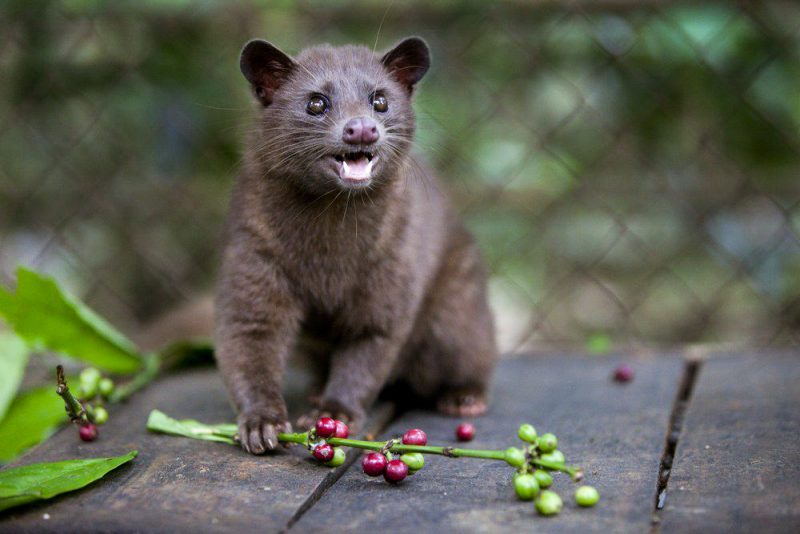
Coffee of this brand is rightfully considered the most expensive, since the amount of product sold is only 45 kg per year, which is associated with a unique method of its manufacture. Palm civettas that live in the southeastern part of Peru “produce” such coffee.Grains, having been inside these animals and going outside with excrement, acquire a unique aroma of cocoa and hazelnuts. The collected raw materials are selected, cleaned and fried to the desired condition. Ready coffee is divided into 6 classes of roasting, and this is necessarily indicated on the packaging.
The cost of one package starts from 11 thousand dollars. All coffee bags are tied with shoelaces with tags in 24-carat gold, where the information about the manufacturer and the degree of roasting are engraved.
Blue Mountain Coffee from Jamaica
This coffee is obtained in the traditional way. However, everything affects the taste: the unique composition of the soil, the direction of the winds, and the location of the plantations. Different tastes are combined in grains - from bitterness to sweetness with sourness. The aroma of the drink is unusual and resembles the smell of fresh nectarine.
More than 85% of the product produced in Jamaica is sold in Japan, so it is problematic to purchase such a drink in our country. In addition, 1 kg of finished raw materials costs about 27 thousand rubles.
Not everyone succeeds in trying all exotic types of coffee. In addition to the high cost, there is a great danger of acquiring a fake. Therefore, it is better to try such a drink in those countries where it is produced.


